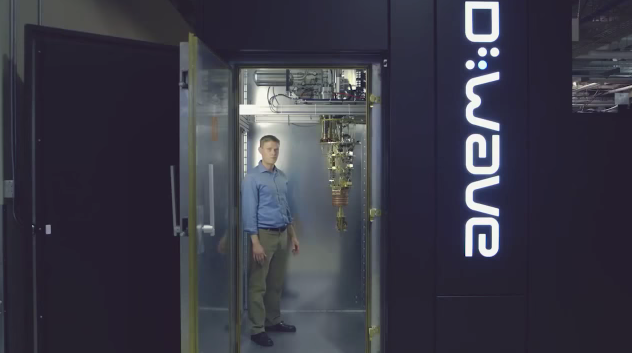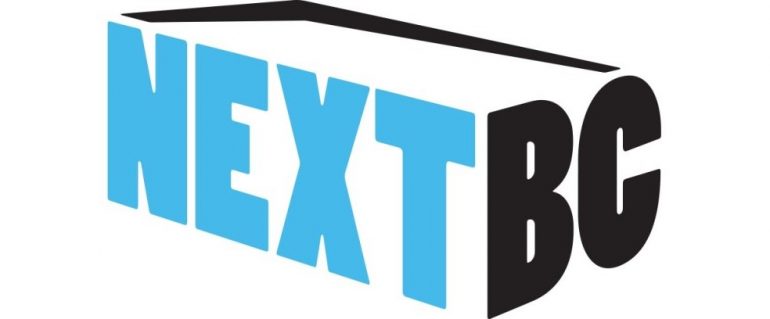The second annual NEXTBC Showcase of Innovation & Awards Night is fast approaching. DigiBC is bringing together some of BC’s top companies in technology, digital creativity and innovation, and giving the public the opportunity to learn about the great ideas and individuals behind them.
Last year’s top five companies were General Fusion (Gold), D-Wave Systems (Silver), Avigilon (Bronze), CapTherm & UrtheCast. While not in the top five, FusionPipe won the Audience Choice award.
This year the categories have been changed and will be recognizing:
-
1. Most Innovative Startup
2. Most Innovative Business Solution
3. Most Innovative Digital Media Company
4. Most Innovative Entertainment Company
5. Most Disruptive Innovation
Four of the winning team’s CEO’s recently talked with BetaKit about the year that was, what it means to call BC home, and the path that’s ahead. Below are our questions, and their answers.

In the past year, what’s been the biggest change in your business or challenge overcome?
For General Fusion’s Dr. Michel Laberge, “our biggest challenges are almost always technical. Fusion is really, really, hard! Our power plant technology requires us to first form a special magnetized plasma (plasma is a very hot, ionized gas), and then compress it quickly to heat it up all the way to fusion conditions. The formation and the compression are two different subsystems, and in the past year we’ve made some really big strides on both, particularly in terms of plasmas that hold their structure and stay hot for a while. We’re not yet ready to call it a ‘breakthrough’, but in our regime within the world of fusion, General Fusion has cemented its position as the world leader.”
Vern Brownell, D-Wave Systems CEO said, “as a systems company, we’re responsible for not only building hardware, but also the necessary software, so that our customers can reap the benefits of our technology. The biggest challenge in the past year has been upgrading our entire system – starting with our hardware. We’ve been dedicated to bringing our updated processor to market, and increasing the number of qubits to increase the machine’s performance.”
According to Urthecast CEO Scott Larson, “our biggest challenge comes from the fact that so many variables are outside of our control — everything from technological hurdles in space to the geopolitical climate here on Earth. This is the nature of space technology. How you attempt to mitigate that is by thinking strategically, so that you can remove those hurdles, slowly and purposefully.”
“In the past year, FusionPipe undertook a pivot in business direction as a result of the tremendous traction experienced with the introduction of QuikID and it’s family of password-less digital identification and authentication solutions,” offered David Snell, FusionPipe’s CEO.
Snell added that “customer validation and market research results indicated that secure authentication technology had huge market potential, and it wasn’t a hard decision to focus our R&D and other resources on developing and marketing an innovative solution that could solve the issue many enterprises deal with – namely how to offer a fast & easy method of authentication for accessing computers and networks without compromising the security.”

Why is it important to you being able to call BC home? What have been the benefits? What have been the challenges?
“BC has been the home for General Fusion from the day we were founded,” Laberge said. “There is an enthusiasm in this area around taking on big problems, and not being afraid to leverage cutting edge science in an entrepreneurial context. You can see this throughout the ecosystem of individuals, angel and venture capital investors, and companies like D-Wave and General Fusion. BC is a rare environment in that regard. And because of a history of diverse technology companies, from space to fuel cells to printing, there is a very strong pool of multi-disciplinary engineering talent here in BC that are part of the entrepreneurial ecosystem. Access to that talent really allowed General Fusion to hit the ground at a sprint when we received our first larger venture capital investments.”
Laberge went on to say, “on the challenges side, we do wish that Canada had an active fusion research program. We used to in the 1990s, and it was well recognized. Since the program ended, however, the amount of fusion and plasma physics research in Canada has declined significantly. General Fusion needs some great scientific minds and academic research partners and right now that’s pretty tough to find here in Canada – we now recruit globally for fusion physics talent, and convince them to come to Vancouver with its great lifestyle, but also its high cost of living.”
“I moved to British Columbia from Boston six years ago with my wife and youngest daughter to join D-Wave Systems as the CEO, and I’ve come to really love the area,” Brownell shared. “Professionally, there’s a lot of exciting research in quantum computing taking place being performed here, and personally, it’s a very welcoming and friendly place. The natural beauty is an added bonus!”
He also said, “from a business perspective, I thought it would be challenging to attract people from all over Canada, and even the United States, to relocate here and make Burnaby their home — but I’ve been pleasantly surprised. While we may one day have offices around the world as an international company, Burnaby will always remain our headquarters. We’re here to stay.”
Urthecast’s Larson told me that “it’s important that we call BC home for many reasons, but mostly because it’s one of the best technological hubs in North America. The pool of talent that you choose from is huge, and with our close proximity to San Francisco, it’s made working hand-in-hand with our Silicon Valley team all the more easier than if we’d been located on the East Coast. One challenge is that, despite the quality of the tech talent here, a significant portion of it is attracted by the lure of Silicon Valley — understandable of course.”
For Snell, “BC offers companies such as FusionPipe valuable access to: R&D partners and university affiliations such as the UBC Secure Systems Lab and Simon Fraser; BC and Federal Government programs & grants such as SR&ED, EBC, NRC-IRAP, MITACS; incubators with value added services such as Wavefront where we are located; as well as access to highly skilled employees and Co-op students. Being located in Vancouver gives us the opportunity to be part of BC’s thriving and vibrant hi-tech ecosystem that offers exciting business opportunities and powerful platforms for networking, learning and knowledge exchange.”

What do you think the BC technology ecosystem needs to become truly world class? What gives you hope that we’re moving in the right direction?
Snell echoed a refrain familiar to many in the BC technology community. “I think what is lacking is access to capital – something that can be a limiting factor for many local technology start-ups,” he said. “Compared to Silicon Valley, BC companies are often struggling to raise enough capital to grow their business fast enough to curb competition early on. With elevated prices for commercial space and living expenses on par with some of the biggest cities in North America, Vancouver needs more angel capital willing to take the plunge and support our innovative start-ups.
“This being said, BC has a very functional network of incubators, accelerators, Angel networks, associations (BCTIA, DigiBC), government funding programs and tax incentive programs that have a direct impact on the quality & potential of the local technology ecosystem.”
“The creative energy in the sector is attracting bigger companies to the area – surely this is a sign of great progress,” Laberge added. “That said, we should not be satisfied with the promising home-grown companies we have. The bar we should be aiming for is to create global champions and we need everyone involved to work together, from startups to investors to governments. That’s certainly the bar we’re aiming for at General Fusion.”
Laberge went on to say that “in terms of specifics, we still see the domestic venture capital industry as struggling. There are a number of funds doing great work, but they are small compared with their international peers, and when it comes to the larger pools of venture capital required to grow big successes, Canadian companies almost always need to look elsewhere, a process which is more difficult and time consuming. Great companies are getting funded in BC, but it happens faster in silicon valley and elsewhere, and speed is such an advantage. Financing is a hard and necessary process for management teams, but it takes time away from building great products and services and winning customers.”
“There’s no question that we’re moving in the right direction,” Larson suggested. “In my experience, the talent here is truly world-class. UrtheCast has been able to amass a world-class technology team — both in space engineering and Internet technologies. The community too is thriving, of course. Vancouver has a spectacular reputation both nationally and internationally and we’ve got some great companies here to back that up.”
For D-Wave’s Brownell, “British Columbia has made some initial efforts to increase the caliber of the technology ecosystem, in terms of government funding, and in terms of open immigration, and these are steps in the right direction. I look forward to seeing more progress in these areas.”
Brownell continued, saying that “BC is already becoming a hub for technology companies — there are more than 9,000 high-tech companies that are based here, and they’re impacting economies and societies around the world. This includes world class companies like Slack, Hootsuite, General Fusion, and others, and their success is a good sign. It validates our technology ecosystem, and proves that we’re already a power to be reckoned with.”

What has you most excited about the year ahead for your company, and how are you impacting your industry specifically?
“We’ve made big strides recently, so over the next year, I’m most excited about our potential to expand – both scientifically and commercially,” said Brownell. “We have our next processor iteration coming up, alongside significant system improvements, and we’re talking to several forward-thinking, prospective customers.
“D-Wave is a pioneering company in the field of quantum computing, similar situation to early traditional computer companies, like Intel, back in the 70s. We think our unique value in this field gives us the ability to build a computer with the power to scale beyond any computer we’ve seen before. That is incredibly useful, and has the potential to impact our planet’s biggest challenges – in finance, in tech and in medicine, to start. I truly believe our potential to change the world is unprecedented.”
For Larson, UrtheCast’s vision from the beginning “has centred around the democratization of Earth imagery from space and the promotion of planet stewardship, and we’ve partnered with organizations such as the UN to help support that vision. What we’re most excited about now is that we are finally bringing this to the world stage. All the planning and working nights and weekends is about to pay off. Between the anticipated release of our first videos to the launch of our beta web platform, this is going to be a huge year for UrtheCast.”
FusionPipe’s Snell claimed that the company is “finding ourselves in a perfect storm: a huge $10B security market in which we are focused on becoming the ‘gorilla’ in the $800M authentication segment who have big pain-points; patent pending technology that has the potential to change the way enterprises are dealing with confidential data, data access and identity management; a number of POC’s with multinationals; and, a dedicated and skilled team to execute on our 2015 Business Plan These are amongst the success indicators that I am most excited about.”
Laberge concluded by saying, “every year right now is bringing exciting advances in fusion. For decades clean, abundant safe fusion energy has been a promise that has never quite been achieved. Now, across the globe, there are a number of projects, from big government science projects such as ITER in France to our own efforts right here in BC that make the short term exciting.
“General Fusion is a world leader among an upsurge in private fusion; companies that aren’t content to wait around for the big projects to yield results. Last year, the journal Science called us “Restless Pioneers,” which we think is a pretty good characterization. We’re pushing forward and I think that’s helping to accelerate the pace of development. Fusion is indeed hard, but with so much determined activity, the short term is finally as exciting as the long term.”
Compared to traditional industries, in some ways the BC technology ecosystem is still rolling around with its training wheels firmly attached. Yet, with companies like the above emerging, growing, and having leaders aiming big, they’re also ensuring technology will be a significant part of moving BC’s economy towards a more sustainable, greener and dynamic future.


